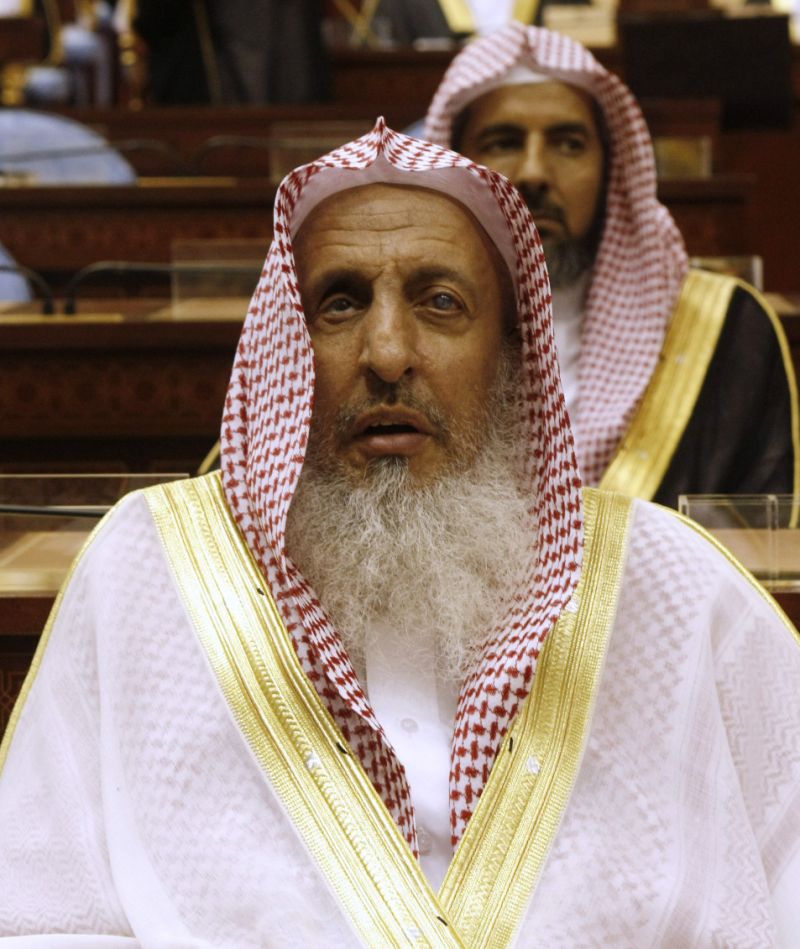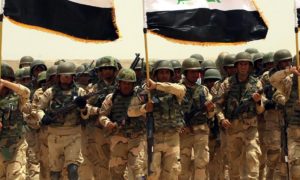Saudi Arabia’s top cleric is revving up the kingdom’s rhetoric against Iran, saying in comments published on Tuesday that Tehran’s leaders are “not Muslims,” in response to rancorous remarks from Iran’s supreme leader.
The remarks by Grand Mufti Abdulaziz Al Sheikh came a day after Iran’s Ayatollah Ali Khamenei accused Saudi authorities of killing Muslims injured during last year’s crush of crowds at the hajj pilgrimage.
Their confrontational comments mark a sharp escalation in the countries’ faceoff as their spat plays out across the region.
Khamenei, in remarks published on his website Monday, said the “heartless and murderous Saudis locked up the injured with the dead in containers — instead of providing medical treatment and helping them or at least quenching their thirst. They murdered them.”
Mostly Wahhabi Saudi Arabia and majority Shiite Iran back opposite sides of the wars in Syria and Yemen, and support opposing political groups in Iraq, Bahrain and Lebanon.
Read more: Saudi Arabia grand mufti asks money for war on Yemen
In comments to the Makkah newspaper, the top Saudi cleric was quoted as saying that Khamenei’s remarks are “not surprising” because Iranians are descendants of “Majuws”— a term that refers to Zoroastrians and those who worship fire. Zoroastrianism is a monotheistic religion predating Christianity and Islam and was the dominant religion in Persia before the Arab conquest.
Read more: Hundreds protest against Saudi Arabia in Norway
“We must understand they are not Muslims, for they are the descendants of Majuws, and their enmity toward Muslims, especially the Sunnis, is very old,” the Saudi cleric said.
Read more: Former Iraq PM al-Maliki: Saudi Arabia source of terrorism
The September 2015 stampede and crush of pilgrims killed at least 2,426 people, according to an Associated Press count. Iran had the highest of death toll of any country, with 464 Iranian pilgrims killed.
Saudi authorities have not released any findings of their investigation into the hajj disaster. Preliminary statements suggested the crush was caused when at least two large crowds intersected.
Khamenei also blamed Saudi Arabia for an earlier crane collapse in Mecca that killed 111 people, and urged Muslims around the world to reconsider Saudi Arabia’s custodianship and management of Islam’s holiest sites in Mecca and Medina where the hajj is performed. He also said Saudi rulers promote sectarian strife and arm “wicked takfiri groups” — a reference to extremist Daesh militants who denounce other Muslims as heretics and non-believers.
Read more: Saudi Issues ‘Fatwa’ Against Pokemon
The two countries severed diplomatic relations in January after Saudi Arabia executed a prominent Saudi Shiite cleric and angry Iranian crowds overran Saudi diplomatic missions.
Read more: Protesters attack the Saudi embassy in Tehran After Execution of Shiite Cleric
Negotiations between the two countries over hajj security measures also collapsed earlier this year, prompting Iran to declare it would not be sending any of its citizens to this year’s pilgrimage, which begins this weekend.
HUMAN RIGHTS
Saudi Arabia has long been criticised for its harsh social codes and punishments, imposed under its puritanical version of Sharia law.
Beheading:
Ali Mohammed al-Nimr was arrested in February 2012 when he was just 17 and accused of organising protests. He was sentenced to death by beheading and crucifixion, along with his uncle, a leading Shia cleric. Philip Hammond, the Foreign Secretary, said last month he did not expect the sentence to be carried out. However, murderers, drug dealers and others convicted on purely criminal charges are often beheaded in public.
Womens’ rights:
While women did in 2105 get to register to vote and can stand for local elections, they are still required to have permission from a “guardian” such as a father, husband or brother to travel freely. Wearing modest clothes and a headscarf in public is compulsory. They are also banned from driving – subject of the country’s most visible civil disobedience campaign in recent years.
The regime in Saudi Arabia has been strongly criticized by human rights organizations.
Hashtags #SueMeSaudi and #SaudiArabiaIsISIS has many hits every minute, and many want to mark their opposition and to show their distance to the brutal dictator regime in Saudi Arabia.
Saudi Arabia practice Wahhabism ideology, a strictly fundamentalist orientation within Sunni Islam, which in practice is the state religion in the country. It is also ideology direction that has inspired al-Qaida and DAESH.







